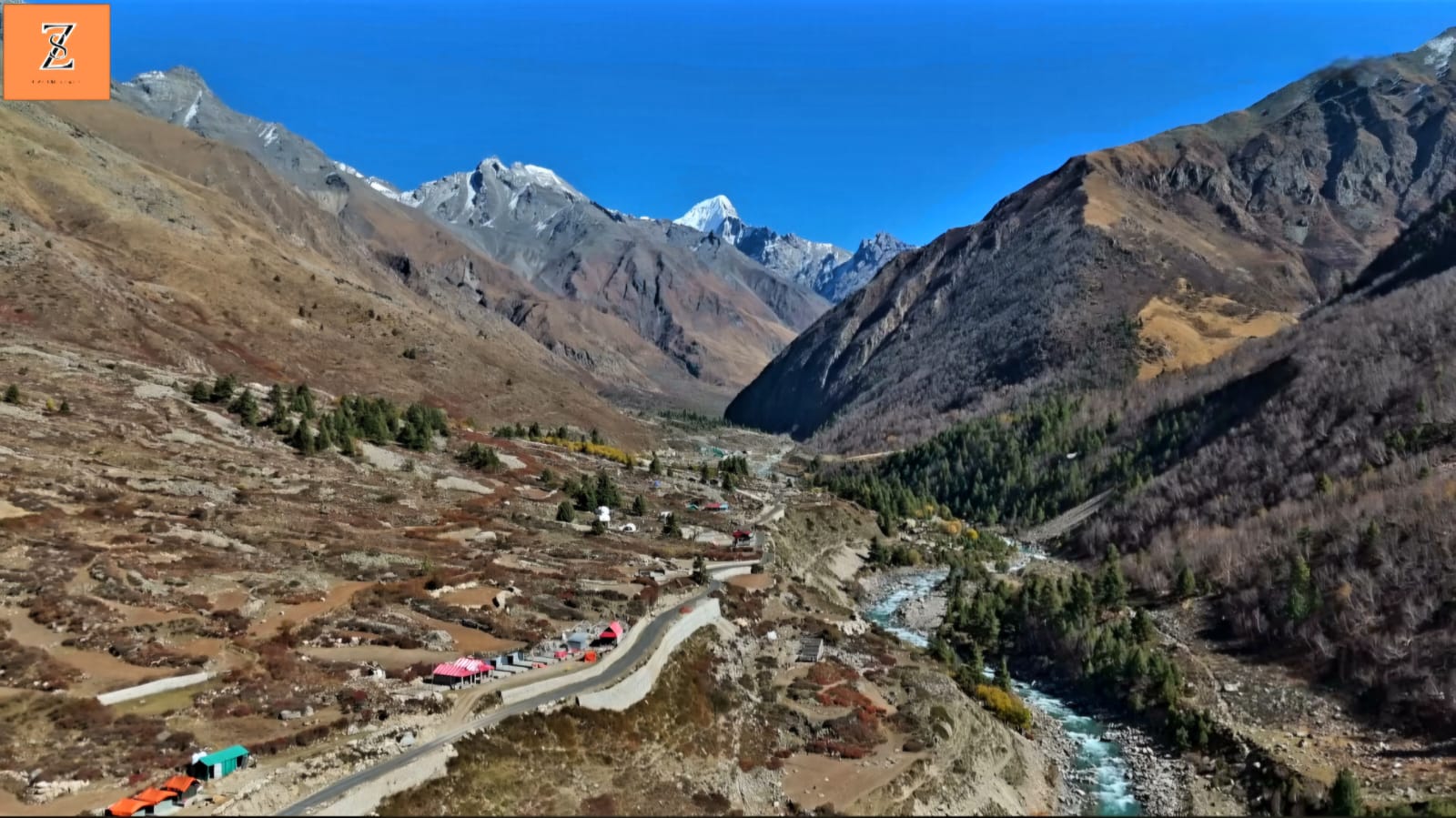Best Travel guide to Chitkul Village for First-Timers 2025: India’s Last Village Himalayan
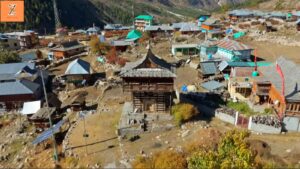
Nestled in the serene Kinnaur district of Himachal Pradesh, Chitkul is a picturesque village located at an altitude of 3,450 meters above sea level. Often referred to as India’s last inhabited village, it lies near the Indo-Tibetan border, where the majestic Baspa River flows alongside breathtaking views of the snow-clad Himalayas. A hidden gem in the state, Chitkul is a haven for nature lovers, adventure seekers, and those yearning to escape the chaos of city life.
Whether it’s the lush green meadows in summer or the snow-blanketed trails in winter, Chitkul offers an otherworldly charm that leaves visitors spellbound. Its untouched beauty, coupled with a tranquil ambiance, makes it an ideal destination for travelers looking to explore a pristine Himalayan village.
Getting to Chitkul: A Road Less Traveled
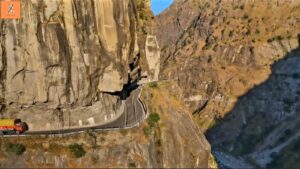
Reaching Chitkul is not for the faint-hearted. The journey includes navigating one of India’s most dangerous roads—winding along steep cliffs with breathtaking views of the Satluj River. Constructed in the 1950s without modern machinery, the road showcases the determination of the workers who hand-carved it through rugged mountains. After a 12-hour drive from Shimla, travelers are rewarded with the breathtaking sights of Chitkul.
•By Air: The nearest airport is in Shimla, approximately 240 km away.
•By Train: The nearest railway station is Kalka, from where you can drive or take a bus to Chitkul.
•By Road: A 12-hour drive from Shimla via the Hindustan-Tibet Highway brings you to Chitkul.
Where to Stay

Chitkul offers several homestays and guesthouses for visitors. A popular choice is the Mannat Homestay, known for its hospitality and scenic views. Advance bookings are recommended, especially during peak seasons.
A Village Like No Other
Chitkul is the last inhabited village before the Indo-China border, with the Indo-Tibetan Border Police (ITBP) stationed beyond its limits. The village, situated at an altitude of 3,450 meters, boasts unparalleled natural beauty with snow-clad peaks, lush apple orchards, and the crystal-clear waters of the Baspa River. According to a study by IIT Delhi, the air and water in Chitkul are among the purest in India.
Life in a Border Village

Living near the China border brings a mix of simplicity and challenges for Chitkul’s residents. The villagers predominantly rely on agriculture, cultivating potatoes, peas, and the unique black and red potatoes known for their medicinal properties. Tourism, a growing industry, provides an additional income source, with homestays offering visitors a chance to experience the village’s charm.
During winters, life becomes tougher as temperatures plummet, water freezes, and heavy snowfall blocks roads. Despite these hardships, the community remains resilient, embodying the spirit of self-sufficiency.
Daily Life and Challenges
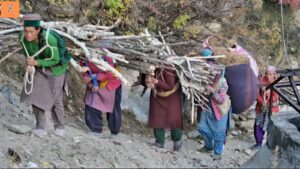
•Harsh Winters: Temperatures drop significantly, with snow cutting off the village from the outside world for months.
•Limited Resources: During winters, water sources freeze, and basic utilities like electricity can become unreliable.
•Community Support: Villagers help each other by sharing resources and manpower, ensuring survival in tough times.
Local Insights
- Homes: Most houses are traditionally made of wood, providing warmth during harsh winters. These structures reflect the region’s rich cultural heritage.
- Healthcare: While a primary healthcare center exists, emergencies require patients to be transported to larger facilities in Sangla or Shimla. In extreme cases, helicopters are used for evacuation.
- Education: The village has schools where children study amidst the serene backdrop of the Himalayas. Many students dream of becoming doctors or joining the armed forces.
The Mystique of Chitkul’s People
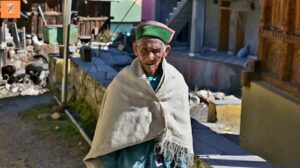
One of the village’s most inspiring residents is a 108-year-old woman who has witnessed generations come and go. Her stories offer a rare glimpse into the resilience of Chitkul’s community. Despite the harsh environment, the villagers’ warmth and hospitality shine through, making every visitor feel welcome.
A visit to the local apple orchards during harvest season reveals the hard work behind the juicy apples that travel to markets across India. The villagers also take pride in preserving their traditions, evident in their unique cuisine and handicrafts.
Exploring the Region
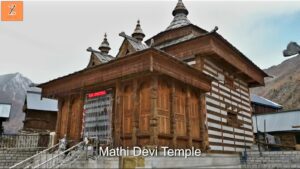
Chitkul serves as a gateway to several adventures:
- Baspa River: A haven for nature enthusiasts, offering scenic trekking routes and trout fishing.
- Mathi Devi Temple: A 500-year-old temple dedicated to the local deity, reflecting the village’s spiritual roots.
- Rupin Pass Trek: Starting from Sangla, this trek takes adventurers through mesmerizing landscapes and ends in Uttarakhand.
-
Village Walks and Local Interaction: Walking through Chitkul reveals wooden houses, apple orchards, and the warmth of its people. The locals are friendly and eager to share stories of their lives near the border.
-
The Checkpost: The last checkpost near Chitkul offers a peek into the restricted military zone. Beyond this lies the Indo-China border, accessible only to authorized personnel.
Further exploration leads to nearby villages like Rakchham, known for its picturesque apple orchards and traditional farming methods.
Adventure and Serenity: Things to Do

1. Trekking: Chitkul serves as the starting point for several treks, including the famous Lamkhaga Pass Trek, which connects Kinnaur to Uttarakhand.
2. Stargazing: The high-altitude location and lack of pollution make Chitkul an ideal spot for stargazing. The night sky here is nothing short of magical.
3. Camping: Camp alongside the Baspa River and wake up to breathtaking views of snow-capped peaks and lush valleys.
Border Dynamics
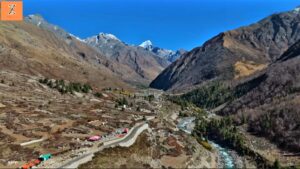
Chitkul’s proximity to the China border adds a layer of intrigue. Surveillance drones and geopolitical tensions occasionally disrupt the otherwise tranquil life. The ITBP and Indian Army maintain a strong presence, ensuring the region’s safety while supporting the locals during emergencies.
A Journey Worth Taking
Chitkul is not just a destination; it’s an experience. It offers a glimpse into the lives of people thriving amidst nature’s challenges, the purity of untouched landscapes, and the serenity of Himalayan life. Whether it’s a walk along the Baspa River, a chat with the ever-smiling villagers, or the thrill of standing at the last checkpoint before the border, Chitkul leaves every traveler with unforgettable memories.
Nearest Villages Around Chitkul
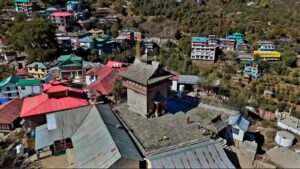
Chitkul, nestled in the Kinnaur district of Himachal Pradesh, is surrounded by serene attractions and quaint villages that add to its charm. Here are some must-visit places near Chitkul:
1. Sangla Valley: Distance from Chitkul 24 km •Famous for its apple orchards and lush green landscapes. The Baspa River flowing through the valley makes it a perfect spot for nature photography. Key attractions include the Kamru Fort and Sangla Meadows.
2. Rakcham Village: Distance from Chitkul 10 km. A quaint village with stunning views of the Baspa River and snow-capped mountains. Perfect for nature walks and short treks. Known for its pastoral life and warm hospitality.
3. Kamru Fort: Distance from Chitkul 29 km (near Sangla). A historical fort with intricate wood carvings and architecture. Houses a temple dedicated to Goddess Kamakhya.
4. Batseri Village: Distance from Chitkul 20 km.A serene hamlet located in the Sangla Valley. Home to the beautifully crafted Bering Nag Temple.
Read also: Your Guide to 7 Breathtaking Spots in Harshil Valley
Travel Tips for Chitkul
- Best Time to Visit: April to October. Roads may be inaccessible during winters due to snowfall.
- Accommodation: Homestays and guesthouses offer basic but comfortable lodging.
- Altitude Caution: Carry medicines for altitude sickness and stay hydrated.
- Connectivity: Limited mobile networks; BSNL works best in the region.
- Eco-Responsibility: Carry reusable bottles and avoid littering to preserve the village’s pristine environment.
-
Clothing: Pack warm clothes, even in summer, as temperatures can drop unexpectedly.
-
Essentials: Carry power banks, as electricity can be inconsistent.
Final Thoughts
Chitkul is more than just a picturesque village; it’s a testament to human resilience and the beauty of simplicity. From its awe-inspiring landscapes to the heartwarming stories of its people, Chitkul offers an experience like no other. Whether you’re an adventurer, a spiritual seeker, or someone looking to escape the chaos of urban life, Chitkul is the perfect destination.
Plan your journey today and let the magic of India’s last village captivate your soul.

